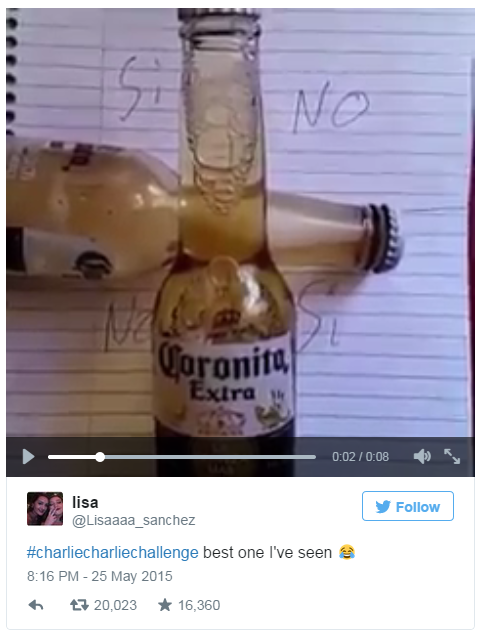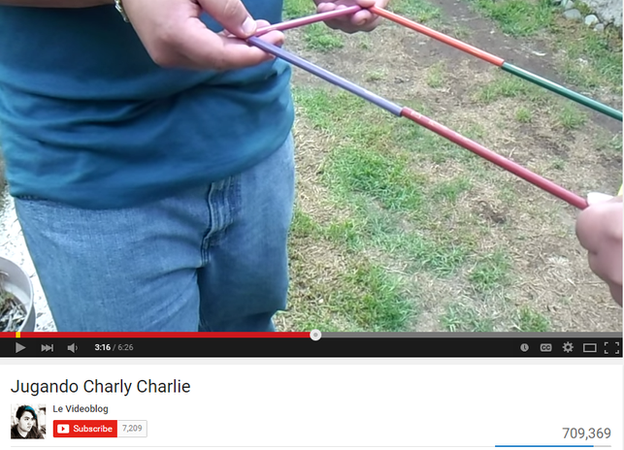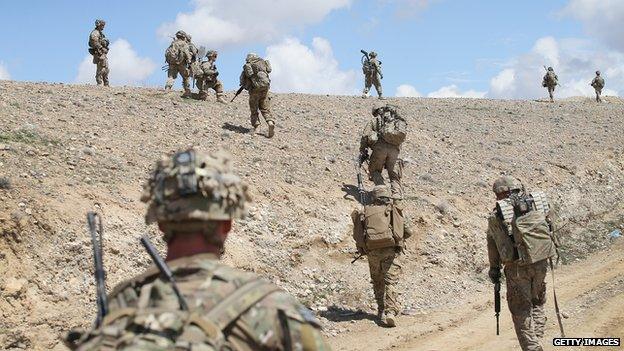Where did Charlie Charlie Challenge come from?
- Published
The internet has been gripped by a Ouija board-like game called "Charlie Charlie challenge", but its origins are not what they seem.
More than 2 million people have used the hashtag #CharlieCharlieChallenge over the past 48 hours. It's a game which involves balancing pencils over the words "yes" and "no" on a piece of paper. Players ask questions which are supposedly answered by Charlie - a mysterious demon who spookily moves the pencils, if you believe in that sort of thing.
Two days ago a Twitter user called @_kluh was one of the first to use the hashtag #CharlieCharlieChallenge, external. It was also made popular by a number of big social media stars in the US. But where did the game come from? Several reports and tweets claim the game's origins are in Mexico. For example, one of the most retweeted videos about Charlie Charlie Challenge, shows a popular Mexican beer brand and the Spanish words for "yes" and "no":

There's just one problem. The game has nothing to do with Mexican folklore.
"There's no demon called 'Charlie' in Mexico," says Maria Elena Navez of BBC Mundo. "Mexican legends often come from ancient Aztec and Maya history, or from the many beliefs that began circulating during the Spanish conquest. In Mexican mythology you can find gods with names like 'Tlaltecuhtli' or 'Tezcatlipoca' in the Nahuatl language. But if this legend began after the Spanish conquest, I'm sure it would've been called 'Carlitos' (Charlie in Spanish)."
"Mexican demons are usually American inventions," she says.
Describing the game as a traditional Mexican way to summon the dead is probably a way to make it sound mysterious or meaningful - in the same way that the Ouija board has its roots in a clever bit of 19th century American marketing, external rather than ancient Egypt. Another possible explanation is this YouTube video, external posted a year ago which shows a slightly different pencil trick. It's in Spanish, and its title translates as "Playing Charlie Charlie."

This year-old YouTube video in Spanish might explain why the 'Charlie Charlie' game is described as being 'Mexican' - even though there's little evidence that it actually is.
Blog by Mike Wendling, external
Next story: Can social media cause post-traumatic stress disorder?

A recent study hit the headlines when it found that some social media users could develop the symptoms of post-traumatic stress disorder (PTSD) by viewing violent or disturbing content. Should we be worried? READ MORE
You can follow BBC Trending on Twitter @BBCtrending, external. All our stories are at bbc.com/trending